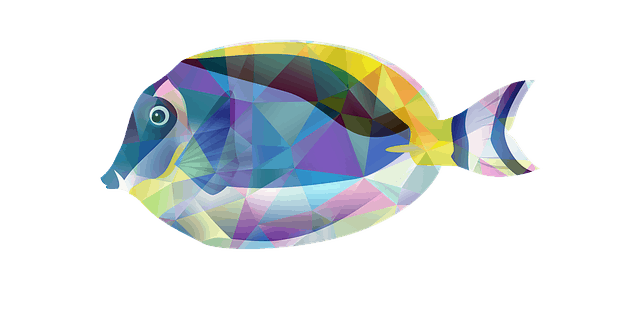As pet owners, we like to speak to our animal companions. This is no different for aquarium hobbyists who love their aquatic creatures. Those who keep fish will often talk to them while observing the tank or just before a cleaning or feeding. But can your fish hear you? The answer is…
Yes, fish can hear your voice and will often associate it with a particular action. If you talk to them just before you feed them, for example, they’ll often swim to the top of the tank as soon as they see you or hear you speak. Over time and with daily interaction, fish begin to recognize you and will respond to both your presence and the sound of your voice.
Now that you know fish can hear you when you talk to them, let’s explore this topic in more detail. I’ll discuss whether (or not) talking to fish scares them, if it’s good to speak to your aquatic pets, and if fish physically react to their owners. I’ll also explain how fish ‘hear’, if they can recognize their own names, and how the sound of music affects them.
So, if you’re ready to learn more about aquarium fish and their ability to recognize their owners upon seeing and/or hearing them, then let’s get begin!
Do Fish Like When You Talk to Them?
To answer the question of whether (or not) fish like when you talk to them implies an understanding of the inner workings of their minds. Since we don’t have that ability as pet owners, all we can go by are their responses to our voices. If they come closer to the glass or swim to the top of the aquarium when you speak to them, this demonstrates a sense of calmness or trust within our presence.
Do Fish Know Their Names?
Fish aren’t like other pets in that they don’t get to know their names per se and won’t react to specific commands. They will, however, recognize your voice and respond physically to it – whether that be by approaching the glass when you’re near the aquarium, following your finger as you move it across the glass, or swimming to surface when you speak and lift the lid.
Do Fish Communicate with Humans?
Fish, like other pets, will communicate with their human keepers. In most cases, they learn to recognize you and your voice and will react physically when you’re in the room. They’ll likely approach the glass when you place your face or finger near it and swim up to the surface when you lift the lid to feed them.
Some fish will go so far as to take food right out of their owners’ hands and even ‘play’ with them. They’ll follow or chase their keepers’ fingers back and forth across the tank and can even be trained to jump or flare in their presence, such as in the case of the betta fish.

Does Talking to Your Aquarium Fish Scare Them?
Sound waves don’ travel far or fast between air and water. Therefore, when you talk to your fish, the sound they hear will be muted or muffled and shouldn’t spook them. Sound waves created underwater, however, travel faster and are much louder so noises generated from aquarium equipment inside the tank are much more likely to scare your fish.
Does Aquarium Equipment Scare Fish?
Tanks that are smaller than 5 gallons shouldn’t have electrically powered equipment as they may be too loud and scare the fish. Submersible power heads, wave makers, internal water pumps air, pumps and power filters should be used in aquariums that are bigger than 10 gallons. Apart from the loud noises they create, they may also cause fast-moving currents that ‘toss’ fish around the tank and cause stress.
Do Aquarium Fish Like Music?
Fish are attracted to specific sounds and vibrations. As a result, they’ll react to different types of music or sonar in various ways. Since fish don’t have ears to hear, they use the cilia or fine nerve hairs on their bodies to detect vibrations caused by sound waves. A combination of organs including the bladder, otoliths, and accelerometers also allow fish to ‘hear’ music or sounds.
Anatomy aside, loud and ‘booming’ music or low frequency sounds (like tapping on the glass) can cause anxiety for aquarium fish. High frequency noises don’t tend to bother fish as the sound waves aren’t able to penetrate the tank. If you happen to have a stereo with a sub woofer in the same room as your aquarium, be sure turn the bass down or off, if possible, to avoid stressing out your fish.
Is it Good to Talk to Your Fish?
Truth be told – talking to your fish is more beneficial for you, the aquarium hobbyist, than it is for your aquatic pets. While your fish can (and do) recognize you and your voice over time, talking to them helps you feel closer to them. Bonding with your pets is the most rewarding part of owning them and gaining their trust – by talking to, feeding, and spending time with them – is how you achieve this.
Do Fish Recognize Their Owners?
Aquarium fish do indeed recognize their owners, especially the older they are and the longer you’ve had them. In some cases – most notably with marine fish in captivity – they seem to form a bond with their keepers. Some will even swim up to faces of their keepers while peering through the aquarium glass and even take food right out of the hands!
Saltwater species like cowfish, for example, will often swim to the surface and open their mouths (likely in anticipation of being fed) upon seeing their owners and hearing their voices. Brackish water types such as archerfish have been known to appear skittish in the presence of strangers but calm down quickly once their keepers enter the room.
Freshwater fish like bettas will also become attached to their owners and show recognition of their voices. This usually comes after months of talking to it, feeding it, playing with it, and even teaching it tricks! For fish to recognize their keepers, aquarium hobbyists should spend a minimum of 10 minutes per day talking near the tank.
How Do You Tell if Your Fish Loves You?
Since ‘love’ is an emotion, it’s difficult to measure it when it comes to sentient creatures like fish or animals. However, there are physical ways to determine if your aquatic pets are ‘happy’ and healthy. These include the following:
- Swimming freely and calmly about the tank – not hiding or appearing skittish in your presence.
- Having vibrantly colored scales which are indicative of their overall state of health.
- Not appearing fearful of other fish in the tank – openly exploring their aquatic surroundings.
- Breathing normally – not gasping for air at the surface which is often a tell-tale sign of distress.
- Eating regularly – refusing food is a symptom of stress and/or impending death.
What are the Best Ways to Bond with Your Aquarium Fish?
Naming your fish and talking to them are the best ways to bond with your aquatic pets. Each time you feed your fish, speak to them, call them by their names. Fish, like other living creatures, need interaction and companionship. The ‘fish whisperer’ technique or simply talking to your fish everyday will help you establish that trusted master-pet relationship, which is important in maintaining happy, healthy fish.
Conclusion
To conclude, fish can hear sounds outside of their aquarium. This includes the voices of their keepers which they’ll often associate with a particular action – such as feeding, for example. If you approach the tank and start speaking, they’ll often swim near the glass or up to the surface to greet you!
I hope you’ve found this article to be both interesting and informative. Thanks for reading and good luck with your aquarium hobby!
Related Posts
How Do I know if My Fish are Happy?






